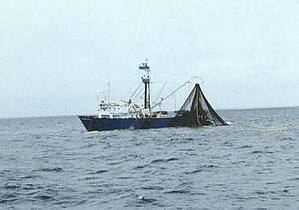|
Monday, July 15, 2002, 04:00 (GMT + 9)
The 20-odd foreign vessels which target tuna in the Maldives are not going to get their licences renewed, according to the Foreign Investment Services Bureau. The measure is a bid to protect the local industry and safeguard stocks.
The tuna-rich waters around the Maldives provide the country with much-needed foreign revenue and the industry has grown by about seven per cent a year during the past decade as a result of government aid to improve the infrastructure and build boats and canning factories.
The improvements mean that the country can now catch and process much more of the tuna itself. The traditional fishing vessel is a dhoni, less than 15 feet long, of which there are about 1,700 operating. Since they were motorised, catches have risen dramatically.
Maldive fishermen say their tuna industry is probably the most environmentally friendly and sustainable in the world. They use pole-and-line fishing methods with live bait and do not snare dolphins.
The booming industry reports exports by private parties of more than USD 61 million a year. Sri Lanka and Asia are the main importers. According to the Maldives Monetary Authority, frozen tuna exports were worth USD 8.1 million in the first quarter, a massive increase from last year's first quarter figure of USD 2.5 million. Exports of canned tuna were worth almost USD 30 million, up by about 23 per cent from the same period last year.
The main composition of the fish catch is skipjack tuna (Katsuwonus pelamis), representing 50-75 per cent of the total catch. The second most important fish is the yellowfin tuna (Thunus albacaraes). The main fish products exported are frozen fish, canned fish, dried fish and salted dry fish. Production was about 104,000 metric tonnes in 1994 and 118,963 metric tonnes in 2000.
By FIS Asia
|
